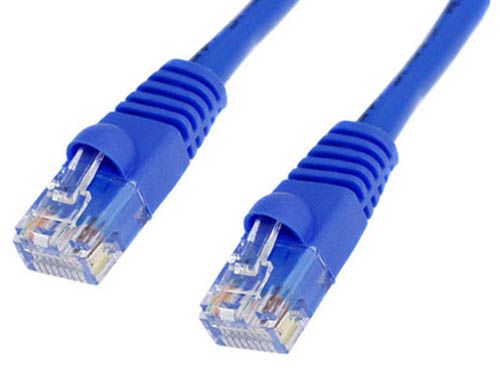Ethernet Network Cables Types

The gigabit ethernet is a type of ethernet network capable of transferring data at a rate of 1000 mbps based on a twisted pair or fiber optic cable and it is very popular.
Ethernet network cables types. Unshielded twisted pair can easily be used for cables between your computer and the wall but you will want to use shielded cable for areas with high interference and running cables outdoors or inside walls. Coaxial twisted pair and fiber optic cabling in modern local area networks twisted pair cable cabling is the most popular type of cabling but fiber optic cabling usage is increasing especially in high end networks coaxial cabling is usually used for cable over the internet. These physical cables are limited by length and durability. Let s explain all three types of ethernet cables in detail.
Next consider the speed needed for your network. The commonly used network cables. Cat 5 cat 5e cat 6 cat 6a cat7 all have different levels of performance and therefore to is necessary to buy or select the right cable for the right application. Ethernet cables connect devices such as pcs routers and switches within a local area network.
Fiber optics instead of insulated metal wires transmitting electrical signals fiber optic network cables use strands of glass and pulses of light. The type of twisted pair cables that support gigabit ethernet is cat 5e cable where all the four pairs of twisted wires of the cable are used to achieve high data transfer. Modern ethernet cables use utp wiring due to its lower cost while stp cabling can be found in other types of networks such as fiber distributed data interface fddi. The year 1995 brought not only microsoft s windows 95.
An ethernet cable is a common type of network cable used with wired networks. The difference between the many types of ethernet cables is the type of wire used how it is bundled and the way it is terminated with a connector. Other options the best usb c cables. If a network cable is too long or of poor quality it won t carry a good network signal.
This knowledge is irrelevant to most home users. Even so an understanding of the different types of ethernet cable and the maximum lengths that should be used is helpful. The differences between the various types of ethernet cables are rather simple but some of. There are three types of ethernet cables.
By contrast category 4 cable pushed this to 20mhz and roughly 16mbps but it was used for token ring rather than ethernet networks.














































